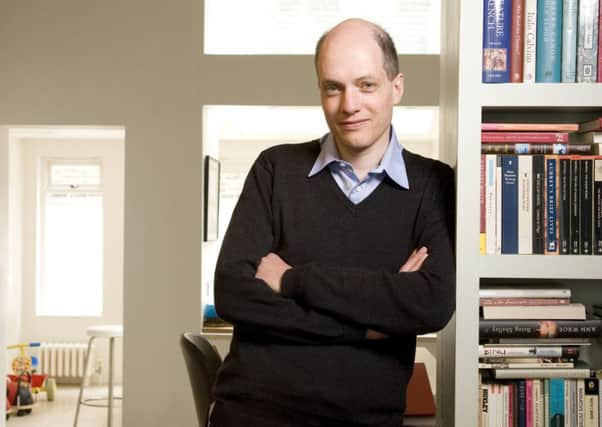The course of love: Happy ever after?


He wrote three novels as a very young man. They were original, quirky, amusing and charming. Then he turned to non-fiction, successfully, writing essayistic books, philosophical examinations of the problems of modern life. The Course of Love is in the same vein, but there is a narrative, the story of a marriage. The narrative itself is interrupted by italicised passages of commentary. Some readers may reasonably choose to skip these passages, pursuing the story of the marriage, and returning to them later.
Rabih Khan, son of a Lebanese father and German mother, is a romantic. He falls in love with Kirsten almost at first sight. She comes from Inverness, where her mother is a teacher. Her father deserted the family, suddenly, without explanation, when she was a little girl. Rabih is shy, unsure of himself and vulnerable. Kirsten has erected a barrier of self-sufficiency. They are in love – there’s no doubt about that – but they don’t know each other. They don’t know themselves either, and when they begin their married life in Edinburgh , where the unfolding story of their marriage takes place, they have much to learn about themselves and each other.
Advertisement
Hide AdAdvertisement
Hide AdMarriage is a journey, over an obstacle course. Marriages used often to be arranged as they still are in many cultures. Such marriages may work out badly, but they start with at least this advantage: that too much may not be expected of them. Now, in the West, people marry for love, and the unspoken expectation is that the couple will live happily ever after. But marriage, even for romantics, is a journey over an obstacle course. It requires a certain surrender of individuality, and this will often provoke resentment. Why, either husband or wife may feel, should I consent to becoming less in the hope of becoming more?
I remember at the wedding of two friends hearing the priest begin his address with a sentence that made the congregation sit up. Anyone, he said, entering the holy state of matrimony expecting happiness is making a mistake. The emphasis was of course on the word “expecting”. Alain de Botton would, I am sure, agree. Marriage is a bed of roses only if you accept that roses have thorns which prick you and draw blood.
Rabih and Kirsten have much to learn, about themselves and each other. They will have two children and the demands of parenthood, married life and work will at times seem intolerable. At one point the water will be so choppy that they consult a therapist. De Botton records their progress, and comments wisely – and, perhaps for readers, helpfully – upon it. The child, Wordsworth writes, “is father of the man”, but de Botton insists that the child lives on in the adult. Maturity comes when both in a marriage recognise and accept the child in themselves and in each other. “Conquering distance and gaining assurances that we are needed aren’t,” he observes, “exercises to be performed only once; they have to be repeated every time there’s been a break – a day away, a busy period, an evening at work – for every interlude has the power once again to raise the question of whether or not we are still wanted.”
The wonder is of course not that so many marriages break down; it is that so many survive. This is a wise book, and a delightful and witty one too. You will learn something about yourself and about other people. Consider this: “Pronouncing a lover ‘perfect’ can only be a sign that we have failed to understand them. We can claim to understand someone only when they have substantially disappointed us… It is the capacity to tolerate dissimilarity that is the true marker of the ‘right’ person. Compatibility is an achievement of love; it shouldn’t be its precondition.”